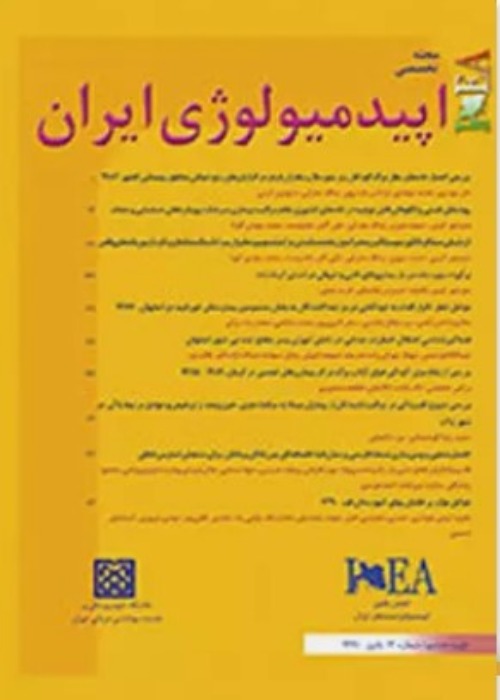Comparison of knowledge, Attitude and Practice (KAP) Regarding Malaria Transmission and Protection between Afghan Refugees and Iranian Residents in Iranshahr, 2005-2006
Author(s):
Abstract:
Background and Objectives
The aim of present study is to compare Afghan refugees and Iranian residents in terms of their knowledge, attitude and practice concerning malaria transmission and protection in an endemic area in Southeast Iran. Methods
This cross sectional study was conducted over a period of 10 months (2004-2005) and involved a total of 775 people, including Iranian and Afghan subjects. The age range of participants was 15 to 55 years. Data collection was done through a structured questionnaire consisting of open and close questions and comprising several, namely personal characteristics details, history of malaria infection and treatments, type of residence, mobility, self protection, facilities, and access to health services. Results
Both Iranians and Afghans were familiar with the three typical symptoms of the disease (fever, chills and muscle aches): 67.1% of Iranians and 78% of Afghans were able to name least one of the three typical symptoms. In both groups the majority of subjects were aware that malaria transmission occurs through mosquito bite but there was a significant difference regarding knowledge of malaria transmission (χ2 =142.2, P<0.001). Chi-square test for goodness of fit showed that the distribution of symptom indicators is significantly different between the two groups. For Iranians, the most important source of information about malaria was the health facilities (44.5% of the total) while most Afghans (65.3%) had obtained the information through friends and relatives. In both groups, the mass media had acted as the source of information in only 3.4%. Altogether, 24% of the participants reported the use of mosquito bed nets; almost 90% of Afghans and 62% of Iranians said that they did not used bed nets at all. However, the number of Iranians who used bed nets was four times greater than the Afghans who did so.Conclusions
Although the majority of subjects were familiar with malaria transmission and protection methods, they largely neglected safety precautions. Moreover, it seems that the high prevalence of malaria among Afghans is due to their life style rather than cross-border travel. The study also revealed that Afghan people have poor communication with the local health facilities, a point that must receive special attention in future malaria control programs.Language:
Persian
Published:
Iranian Journal of Epidemiology, Volume:3 Issue: 3, 2008
Page:
7
magiran.com/p615170
دانلود و مطالعه متن این مقاله با یکی از روشهای زیر امکان پذیر است:
اشتراک شخصی
با عضویت و پرداخت آنلاین حق اشتراک یکساله به مبلغ 1,390,000ريال میتوانید 70 عنوان مطلب دانلود کنید!
اشتراک سازمانی
به کتابخانه دانشگاه یا محل کار خود پیشنهاد کنید تا اشتراک سازمانی این پایگاه را برای دسترسی نامحدود همه کاربران به متن مطالب تهیه نمایند!
توجه!
- حق عضویت دریافتی صرف حمایت از نشریات عضو و نگهداری، تکمیل و توسعه مگیران میشود.
- پرداخت حق اشتراک و دانلود مقالات اجازه بازنشر آن در سایر رسانههای چاپی و دیجیتال را به کاربر نمیدهد.
In order to view content subscription is required
Personal subscription
Subscribe magiran.com for 70 € euros via PayPal and download 70 articles during a year.
Organization subscription
Please contact us to subscribe your university or library for unlimited access!


